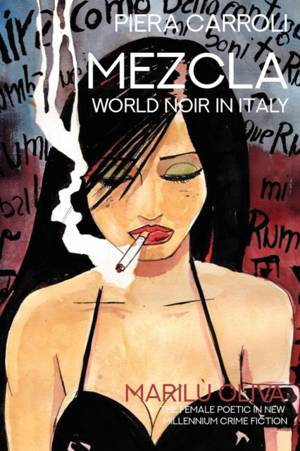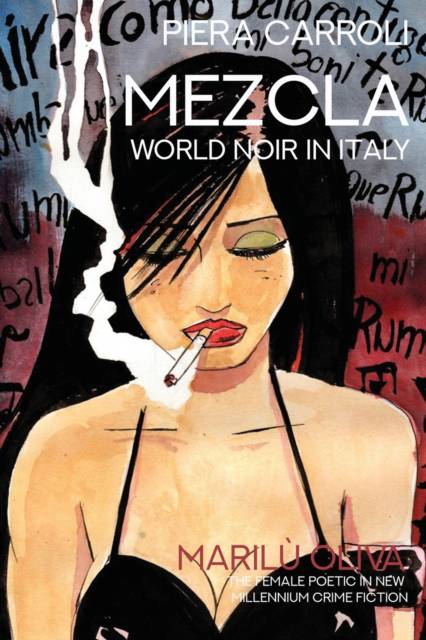
- Afhalen na 1 uur in een winkel met voorraad
- Gratis thuislevering in België
- Ruim aanbod met 7 miljoen producten
- Afhalen na 1 uur in een winkel met voorraad
- Gratis thuislevering in België
- Ruim aanbod met 7 miljoen producten
Mezcla, World Noir in Italy
Marilù Oliva: The Female Poetic in New Millennium Crime Fiction
Piera CarroliOmschrijving
Marilù Oliva's oeuvre is an essential means of understanding Italy's complexities of today in relation to those of the past. Like many of her protagonists, La Guerrera and Martina, she is a flâneuse through space and time who dares to push boundaries - literary, genre, societal - in her books and by speaking out at conferences, festivals, book launches. We have tried to capture a glimpse of her multi-faceted work with our essays, in English and Italian written in-between Italy and Australia, including authors from different professions. The authors of the book, through the analyses of Oliva's oeuvre argue that mezcla is the key to build empathy rather than hatred, appreciation rather than fear of otherness, an exorcism of current xenophobia. include gender. and that tranculturalism and translingualism to help encourage a more inclusive society.
In the Italian/world noir panorama there still are no texts set within the world of salsa, or that narrates the origins of salsa. Hence the uniqueness of the trilogy. Oliva is the first crime writer to foreground the strong synergy between Bologna and Cuba.
Marilù Oliva with La Guerrera has revolutioned noir and gender in noir, as well as ensuring the continuation of the genre by changing its skin. A fast-emerging noir writer from Bologna, unpublished in English - pluricultural and plurilingual - Like Calvino, she is chameleonic and surprises readers with mixing different genres and styles in each publication.
In this multi-perspective book readers discover world myths as interpreted by different cultures in various continents, the world of Latin American Gods, literature and music, while connecting with the greatest Western author, Dante through the unforgettable protagonist La Guerrera.
The authors', from the antipodes to Europe, will accompany you in analytical journeys through all corners of the globe in their comparative readings of Oliva's works, which also focus on current worst crimes: migrations and violence against women, precariato. Yet, in this bleak global landscape, both Marilù Oliva strives for to provide her characters with possibilities and readers with slight relief.
With their different theoretical approaches (gender-based, postcolonial, anthropological and literary) inclusive of translations into English from Italian, Spanish and Portuguese, the authors of the book give readers, Italian and non Italian especially, an opportunity to appreciate the works of this fast emerging Bologna author who writes about World literature, culture and myth.
Specificaties
Betrokkenen
- Auteur(s):
- Uitgeverij:
Inhoud
- Aantal bladzijden:
- 266
- Taal:
- Engels
- Reeks:
- Reeksnummer:
- nr. 43
Eigenschappen
- Productcode (EAN):
- 9781838591311
- Verschijningsdatum:
- 28/10/2019
- Uitvoering:
- Paperback
- Formaat:
- Trade paperback (VS)
- Afmetingen:
- 156 mm x 234 mm
- Gewicht:
- 376 g

Alleen bij Standaard Boekhandel
Beoordelingen
We publiceren alleen reviews die voldoen aan de voorwaarden voor reviews. Bekijk onze voorwaarden voor reviews.












